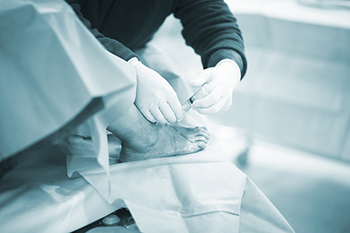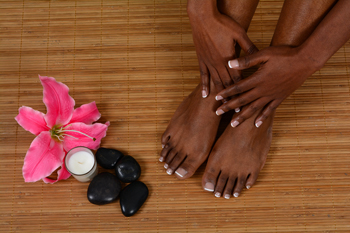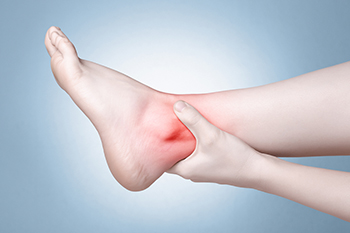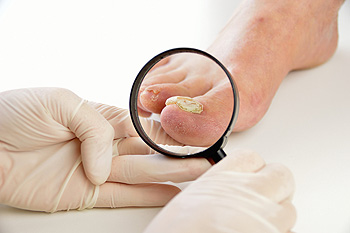
Foot arthritis is not only extremely painful but it also can seriously affect your ability to conduct normal daily activities. Medication can play a vital role in the relieving pain and inflammation of arthritic foot pain. Nonsteroidal anti-inflammatory drugs, or NSAIDs, help to reduce inflammation and pain, and some topical versions in the form of gels or creams can offer targeted relief. Corticosteroids swiftly control inflammation, with oral corticosteroids used for systemic issues and joint-specific injections for localized inflammation. Analgesics, including acetaminophen and opioids, focus solely on pain relief, but opioids are for short-term use due to their potential for dependency. Certain topical treatments can alleviate muscle and surface-level soft tissue pain. To help reduce the progression of arthritic foot pain, disease modifying antirheumatic drugs, or DMARDs, may be used with small joint conditions like rheumatoid arthritis. Gout medications manage uric acid levels and provide relief during flare ups. Biologics are systemic agents that alter the course of inflammatory diseases that affect various joints, including the feet. Osteoporosis medications, while not foot-specific, promote overall bone strength, and may help to reduce the risk of fractures. If you suffer from any type of arthritis that affects your feet, it is suggested that you make an appointment with a podiatrist who can recommend the appropriate medication for you.
Arthritis can be a difficult condition to live with. If you are seeking treatment, contact one of our podiatrists from Foot Health Center of Merrimack Valley. Our doctors can provide the care you need to keep you pain-free and on your feet.
Arthritic Foot Care
Arthritis is a term that is commonly used to describe joint pain. The condition itself can occur to anyone of any age, race, or gender, and there are over 100 types of it. Nevertheless, arthritis is more commonly found in women compared to men, and it is also more prevalent in those who are overweight. The causes of arthritis vary depending on which type of arthritis you have. Osteoarthritis for example, is often caused by injury, while rheumatoid arthritis is caused by a misdirected immune system.
Symptoms
- Swelling
- Pain
- Stiffness
- Decreased Range of Motion
Arthritic symptoms range in severity, and they may come and go. Some symptoms stay the same for several years but could potentially get worse with time. Severe cases of arthritis can prevent its sufferers from performing daily activities and make walking difficult.
Risk Factors
- Occupation – Occupations requiring repetitive knee movements have been linked to osteoarthritis
- Obesity – Excess weight can contribute to osteoarthritis development
- Infection – Microbial agents can infect the joints and trigger arthritis
- Joint Injuries – Damage to joints may lead to osteoarthritis
- Age – Risk increases with age
- Gender –Most types are more common in women
- Genetics – Arthritis can be hereditary
If you suspect your arthritis is affecting your feet, it is crucial that you see a podiatrist immediately. Your doctor will be able to address your specific case and help you decide which treatment method is best for you.
If you have any questions, please feel free to contact one of our offices located in North Andover, and Tewksbury, MA . We offer the newest diagnostic and treatment technologies for all your foot care needs.











